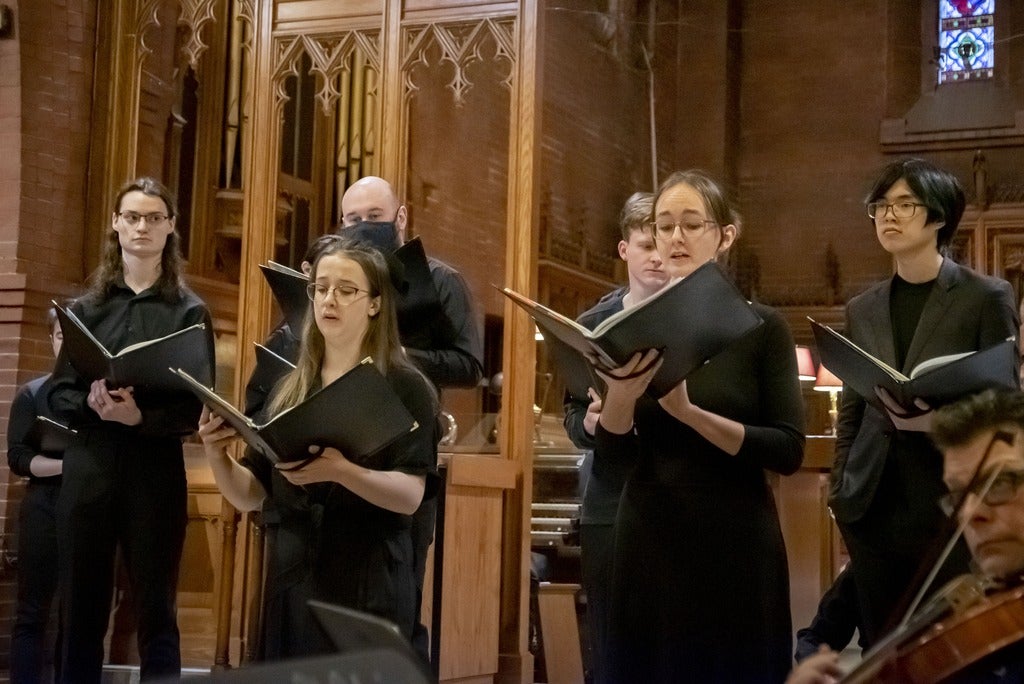“The Woman Who Walks” in Musical Form

Gradiva, or the “woman who walks,” has been a long-time figure within artistic circles. Believed to originate from Greece in 4th-century BCE, the image of the walking woman has inspired many notable 20th-century artists and scholars, including Sigmund Freud. This simple, yet powerful image has continued to ignite artist creativity; most recently, the famous bas-relief has inspired Karen Sunabacka, Associate Professor of Music at Conrad Grebel University College and the University of Waterloo. Grebel’s Chamber Choir will be presenting the world premiere of Gradiva, a choral collaborative project between Sunabacka and visual artist and writer Zsuzsanna Ardó. Karen’s musical interpretation is based on Ardó’s poem and is an outcry against the neglect women and mother nature have faced throughout history.
“I was drawn to the way Zsuzsanna takes an ancient picture of a woman walking and shows this woman’s strength, while bringing her to the present,” Sunabacka explained. She wanted her composition to reflect the same three-part structure Ardó used, where the first and second sections begin with phrase “saw her,” and the third section begins with “see her.”
“I set each of these sections as a musical calling to attention; that we ‘saw’ this woman of the ancient past, that we ‘saw’ this woman of the recent past, and that we now ‘see’ this woman in the present.” Sunabacka explained that women are sometimes overlooked, ignored, and do not want to draw attention to themselves. “When women continue to walk like Gradiva, with ‘rhythm and strength in their steps’ in a ‘calm and quiet gait,’ it helps show how women are still creating and caring for life. Women mirror Mother Earth, who is still here giving us life, despite the ways we are destroying the planet.”
Gravida is part of a much larger project called PlanetWoman, curated by Ardó, featuring women composers from around the world. These composers selected text from a collection of poems written by Ardó, celebrating women creatives across time and space. Another piece by Sunabacka, Blue Planet Blues, is included in this choral programme and will be premiered in Los Angeles, California at the end of April.
With their interpretation of Gradiva, Sunabacka and Ardó hope to reclaim the voice of the woman who has been mostly discussed by men and used as a muse for men. “This is our story of ‘the woman who walks,’” she said.
The piece will be premiered on Friday, April 5 at 7:30 pm, during the University of Waterloo Chamber Choir’s end of term concert at Church of St. John the Evangelist in Kitchener.
By Jiho Mercer
